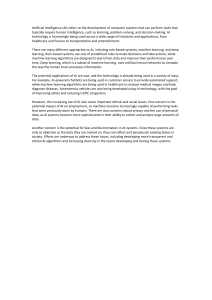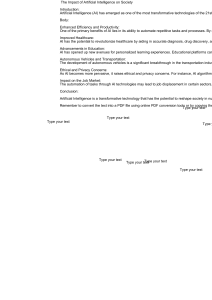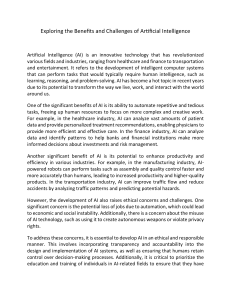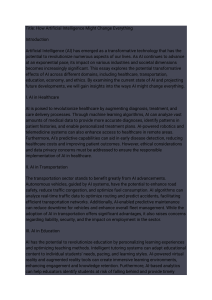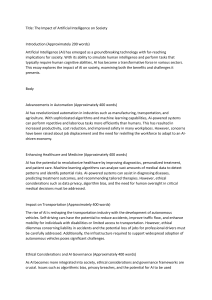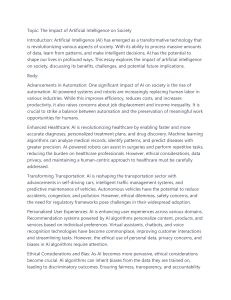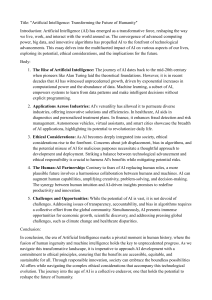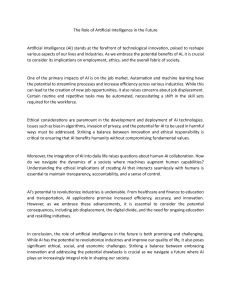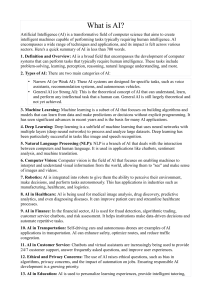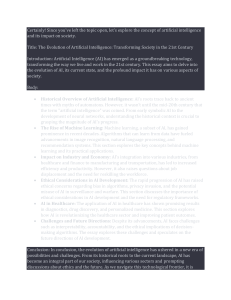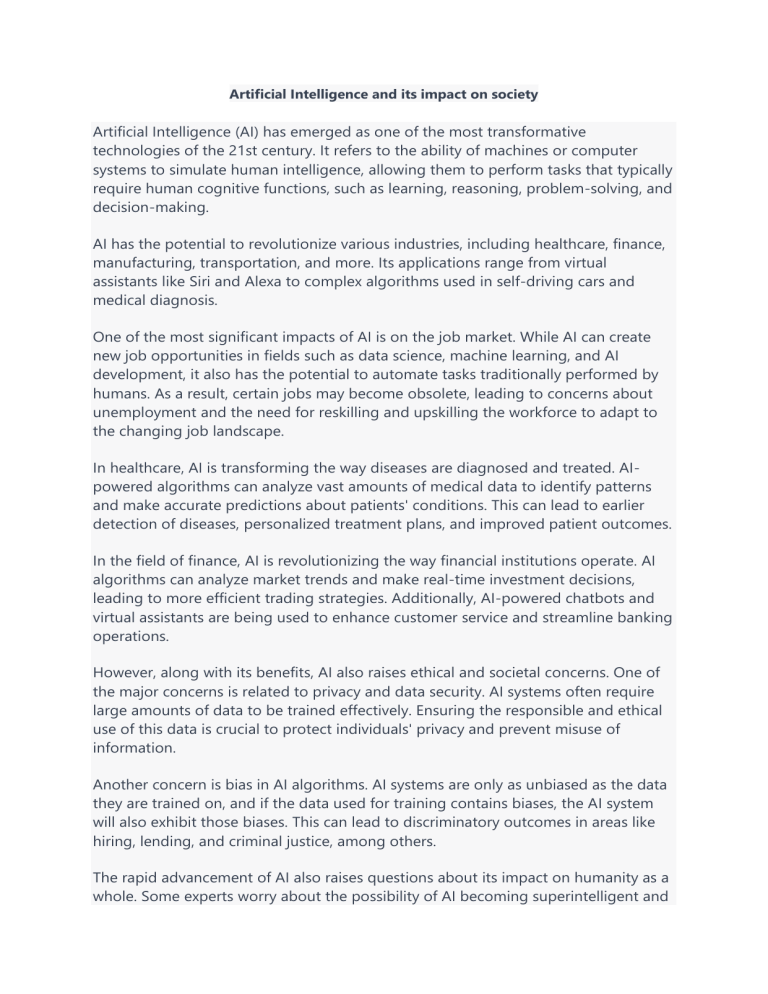
Artificial Intelligence and its impact on society Artificial Intelligence (AI) has emerged as one of the most transformative technologies of the 21st century. It refers to the ability of machines or computer systems to simulate human intelligence, allowing them to perform tasks that typically require human cognitive functions, such as learning, reasoning, problem-solving, and decision-making. AI has the potential to revolutionize various industries, including healthcare, finance, manufacturing, transportation, and more. Its applications range from virtual assistants like Siri and Alexa to complex algorithms used in self-driving cars and medical diagnosis. One of the most significant impacts of AI is on the job market. While AI can create new job opportunities in fields such as data science, machine learning, and AI development, it also has the potential to automate tasks traditionally performed by humans. As a result, certain jobs may become obsolete, leading to concerns about unemployment and the need for reskilling and upskilling the workforce to adapt to the changing job landscape. In healthcare, AI is transforming the way diseases are diagnosed and treated. AIpowered algorithms can analyze vast amounts of medical data to identify patterns and make accurate predictions about patients' conditions. This can lead to earlier detection of diseases, personalized treatment plans, and improved patient outcomes. In the field of finance, AI is revolutionizing the way financial institutions operate. AI algorithms can analyze market trends and make real-time investment decisions, leading to more efficient trading strategies. Additionally, AI-powered chatbots and virtual assistants are being used to enhance customer service and streamline banking operations. However, along with its benefits, AI also raises ethical and societal concerns. One of the major concerns is related to privacy and data security. AI systems often require large amounts of data to be trained effectively. Ensuring the responsible and ethical use of this data is crucial to protect individuals' privacy and prevent misuse of information. Another concern is bias in AI algorithms. AI systems are only as unbiased as the data they are trained on, and if the data used for training contains biases, the AI system will also exhibit those biases. This can lead to discriminatory outcomes in areas like hiring, lending, and criminal justice, among others. The rapid advancement of AI also raises questions about its impact on humanity as a whole. Some experts worry about the possibility of AI becoming superintelligent and surpassing human capabilities. This scenario, known as "technological singularity," could have both positive and negative consequences, depending on how it is managed. To address these concerns and ensure that AI is developed and used responsibly, there is a growing emphasis on AI ethics and governance. Governments, companies, and academic institutions are working together to establish guidelines and frameworks to promote the responsible development and deployment of AI technologies. In conclusion, Artificial Intelligence is a powerful and transformative technology that has the potential to revolutionize various aspects of our society. Its impact can be seen across industries, from healthcare and finance to transportation and entertainment. However, to fully harness the benefits of AI while mitigating its risks, it is essential to address ethical, societal, and policy challenges associated with its development and use. As AI continues to evolve, it is crucial to strike a balance between technological advancements and ethical considerations to ensure a positive and inclusive impact on society.
